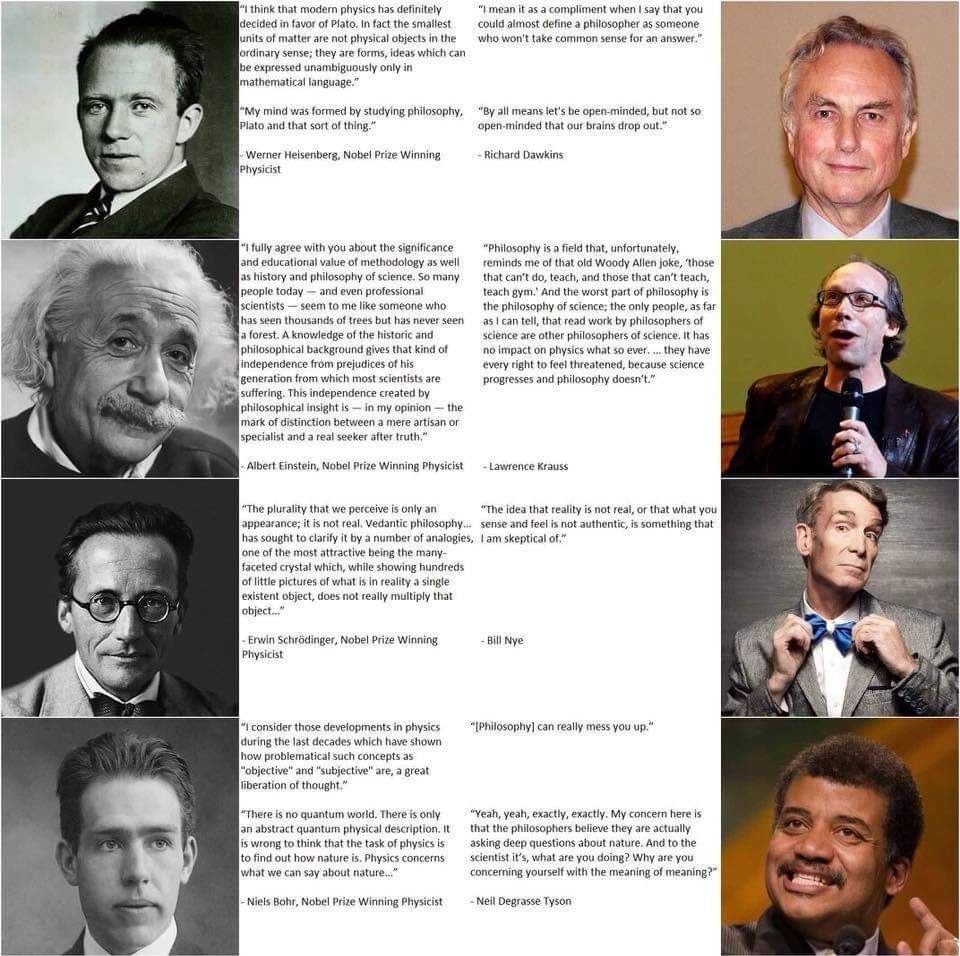As always the "mind reduces to the brain" absurdity has risen up again. And as always I discussed my evidence against it at length only to be met with cries of "you haven't presented anything!" So where one such materialist, as usual, couldn't even address the points enough to acknowledge their existence, I'll repost them for their peers. Can't wait to see how differently it goes this time!
1. The mind and matter have wholly contradictory properties and so must be wholly separate things by the Law of Identity.
2. We're certain of consciousness and rely on it for all knowledge of matter. Can't reduce what we know to what we only know through it.
3. The human mind can question, manipulate, and go against nature to extreme degrees and so cannot be of nature. Empirical evidence includes medicine, cognitive therapy, self regulation, placebos, technological advancements, etc.
4. The Advent of higher consciousness during the Upper Paleolithic Revolution contradicts biologocal evolution in that it (1) occurred when we were already biologically modern, (2) effected the entire species at one time, and (3) is capable of what we discussed in #3.
The brain has been the subject of scientific study since the 18th century, but particularly since new tools became available in the 1990s. Brain research has revealed what has been called the most complex physical thing known in the universe, and while we can't pretend to have anything like a full grasp of it, progress has been steadily made.
It's all intricate biochemistry and bioelectricity. Nowhere has an alternative cause of mentation been detected. No phenomena have been observe that demand an explanation outside of that arena.
If you're right, why is that?
Surely the word 'immaterial' has no demonstrated meaning other than 'non-existent' / 'wholly imaginary'?
Yet even if we imagine an immaterial part of our mentation notwithstanding that obvious factor, then if such a thing were to exist then in our examinations of brain function we must detect the physical brain interacting with it, no?
The evidence of the interaction would be countless physical phenomena, identified because they have no apparent physical cause, but displaying a systematic and repeated presence relating to the various particular brain functions, no?
Yet we've never detected anything like that, correct?
And if we did, it would bring up a host of peculiar questions, like, How does the immaterial part function? Why does the brain need it? Why does it need a brain? The material part has all the emotions, the result of interaction between the brain and its hormones, but what is the exact division of labor between the material and immaterial parts? Which has the memory? Why can memory be impaired by brain injury? Which has the sex drive? Which withdraws your hand from the hot stove? Drives the car while you're talking to your passenger? Feels hungry? And decides to stop for a burger?
And since it's immaterial, hence wholly impervious to physics, how does it stay with the brain as we move around, as the earth rotates, as the earth moves in its orbit, as the sun moves relative to our galaxy, as our galaxy moves relative to other galaxies?
I'm seriously interested to hear your illumination of these points.

